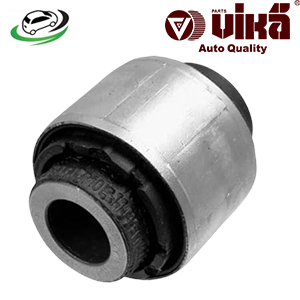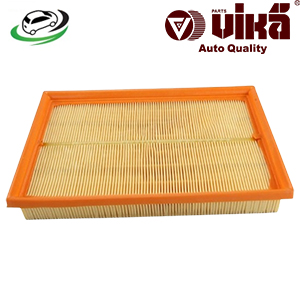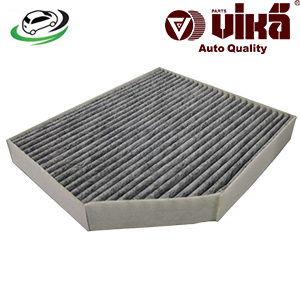-18%
Get Cabin Filter(Air-Con) Activated Carbon AUDI A4/A5/Q5 2007 8K0819439A
The cabin filter, also known as the air cabin filter or interior air filter, plays a crucial role in maintaining the air quality inside a vehicle. It filters out pollutants, allergens, and particulates from the air that enters the cabin, ensuring a cleaner and healthier environment for the occupants. This article delves into the function, types, benefits, and maintenance of cabin filters to help you understand their importance and how to keep them in optimal condition.
Function of the Cabin Filter
- Air Filtration:
- Primary Role: The cabin filter’s main function is to trap dust, pollen, soot, and other airborne contaminants before they enter the vehicle’s interior.
- Mechanism: As air from the outside passes through the filter, it captures particles and pollutants, allowing only clean air to enter the cabin.
- Allergen Reduction:
- Primary Role: The cabin filter helps reduce allergens such as pollen, mold spores, and dust mites, providing relief to passengers with allergies or respiratory issues.
- Mechanism: By filtering out these allergens, the filter improves air quality and contributes to a healthier driving environment.
- Protection for HVAC System:
- Primary Role: The cabin filter protects the vehicle’s heating, ventilation, and air conditioning (HVAC) system from dust and debris.
- Mechanism: By keeping the HVAC system clean, the filter helps maintain its efficiency and longevity, reducing the likelihood of system malfunctions.
- Improved Airflow:
- Primary Role: A clean cabin filter ensures unobstructed airflow through the HVAC system, which helps maintain optimal air circulation within the vehicle.
- Mechanism: Proper airflow enhances the performance of the air conditioning and heating systems, providing consistent comfort to the occupants.
Types of Cabin Filters
- Particle Filters:
- Description: These filters are designed to capture larger particles such as dust, pollen, and soot.
- Material: Typically made of a layered synthetic material that traps particulates as air passes through.
- Advantages: Effective in removing larger airborne contaminants, improving overall air quality.
- Activated Carbon Filters:
- Description: These filters contain activated carbon, which adsorbs odors, gases, and volatile organic compounds (VOCs) in addition to particulate matter.
- Material: A combination of standard filtering material with a layer of activated carbon.
- Advantages: Reduces unpleasant smells, such as smoke or exhaust fumes, and enhances air quality by removing harmful gases.
- HEPA Filters:
- Description: High-Efficiency Particulate Air (HEPA) filters are designed to capture very small particles, including allergens and pollutants.
- Material: Made from a dense mat of synthetic fibers arranged to trap particles as small as 0.3 microns.
- Advantages: Provides superior filtration, especially beneficial for passengers with severe allergies or respiratory conditions.
- Electrostatic Filters:
- Description: These filters use an electrostatic charge to attract and capture particles.
- Material: Made from materials that can generate static electricity, which attracts dust and other contaminants.
- Advantages: Efficient at trapping fine particles and can be reusable if properly maintained.
Benefits of Cabin Filters
- Enhanced Air Quality:
- Benefit: Cabin filters improve the air quality inside the vehicle by removing harmful pollutants and allergens.
- Explanation: Clean air reduces respiratory issues, allergies, and discomfort for passengers.
- Improved Comfort:
- Benefit: A properly functioning cabin filter ensures a comfortable driving experience by maintaining a steady flow of clean air.
- Explanation: Proper filtration helps regulate temperature and reduce humidity inside the cabin, contributing to overall comfort.
- Protection for HVAC System:
- Benefit: Cabin filters protect the HVAC system from dust and debris, reducing the risk of system malfunctions and prolonging its lifespan.
- Explanation: A clean HVAC system operates more efficiently and requires fewer repairs.
- Reduction of Odors:
- Benefit: Activated carbon filters can help eliminate unpleasant odors and reduce the impact of external fumes and pollutants.
- Explanation: The absorption capacity of activated carbon neutralizes odors from sources such as exhaust fumes, smoke, or chemicals.
- Increased Safety:
- Benefit: By ensuring clean air inside the vehicle, cabin filters contribute to safer driving conditions by maintaining alertness and reducing distractions caused by poor air quality.
- Explanation: Improved air quality helps keep drivers and passengers comfortable and focused on the road.
Symptoms of a Faulty Cabin Filter
- Reduced Airflow:
- Symptom: Decreased airflow from the HVAC system or weak air output.
- Cause: A clogged or dirty cabin filter restricts air movement.
- Consequence: Reduced airflow can affect comfort and HVAC system performance.
- Unpleasant Odors:
- Symptom: Persistent bad smells inside the vehicle, such as musty or moldy odors.
- Cause: A contaminated or degraded filter may allow odors to pass through or absorb unpleasant smells.
- Consequence: Poor air quality and discomfort for passengers.
- Increased Dust and Debris:
- Symptom: Visible dust or debris inside the cabin or on the dashboard.
- Cause: A malfunctioning or clogged filter may allow particulates to enter the vehicle.
- Consequence: Increased cleaning requirements and potential health issues.
- Frequent HVAC System Issues:
- Symptom: HVAC system struggles to regulate temperature or produces unusual noises.
- Cause: A clogged filter can cause strain on the HVAC system, leading to operational issues.
- Consequence: Reduced efficiency and potential system damage.
- Allergy or Respiratory Symptoms:
- Symptom: Increased allergy symptoms or respiratory issues while in the vehicle.
- Cause: A dirty filter may not effectively capture allergens and pollutants.
- Consequence: Discomfort and health concerns for passengers.
Maintenance and Replacement Tips
- Regular Inspections:
- Tip: Check the cabin filter periodically for signs of dirt, clogging, or damage.
- Frequency: Inspections should be part of routine vehicle maintenance, typically every 15,000 to 30,000 miles or as recommended by the manufacturer.
- Timely Replacement:
- Tip: Replace the cabin filter according to the manufacturer’s recommendations or when symptoms of a faulty filter are noticed.
- Indication: Replace the filter if airflow decreases, odors increase, or there are signs of clogging.
- Choose the Right Filter:
- Tip: Select a cabin filter that matches the vehicle’s specifications and requirements. Consider the benefits of activated carbon or HEPA filters if additional filtration is needed.
- Reason: Properly matched filters ensure effective performance and air quality.
- Professional Assistance:
- Tip: Have a professional mechanic inspect and replace the cabin filter if you are unsure about the process or if complications arise.
- Reason: Professional assistance ensures proper installation and function.
- Keep the Cabin Clean:
- Tip: Regularly clean the vehicle’s interior to minimize the accumulation of dust and debris that can affect the cabin filter.
- Reason: A clean cabin helps maintain the effectiveness of the filter and improves overall air quality.
- Monitor Air Quality:
- Tip: Pay attention to changes in air quality or HVAC system performance as indicators of filter condition.
- Reason: Monitoring helps identify potential issues early and ensures timely maintenance.
Follow us on Facebook for more parts.



